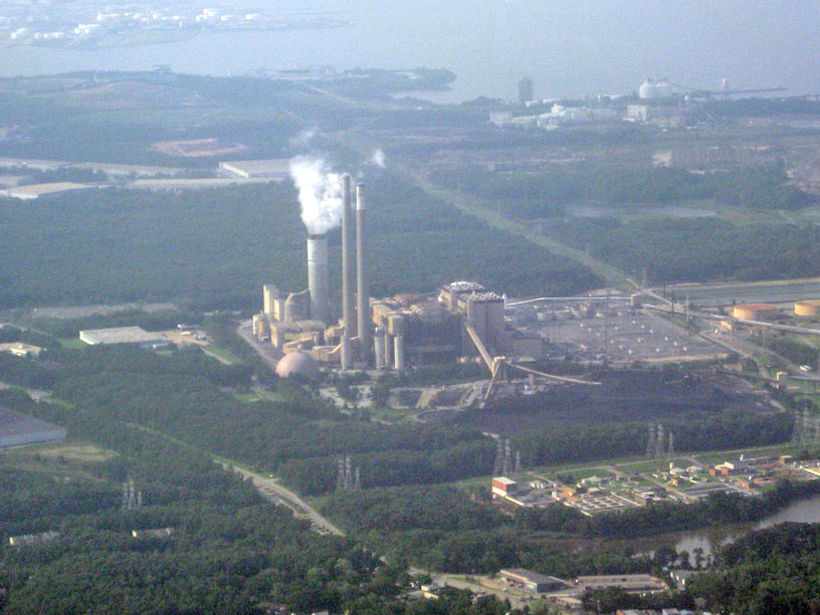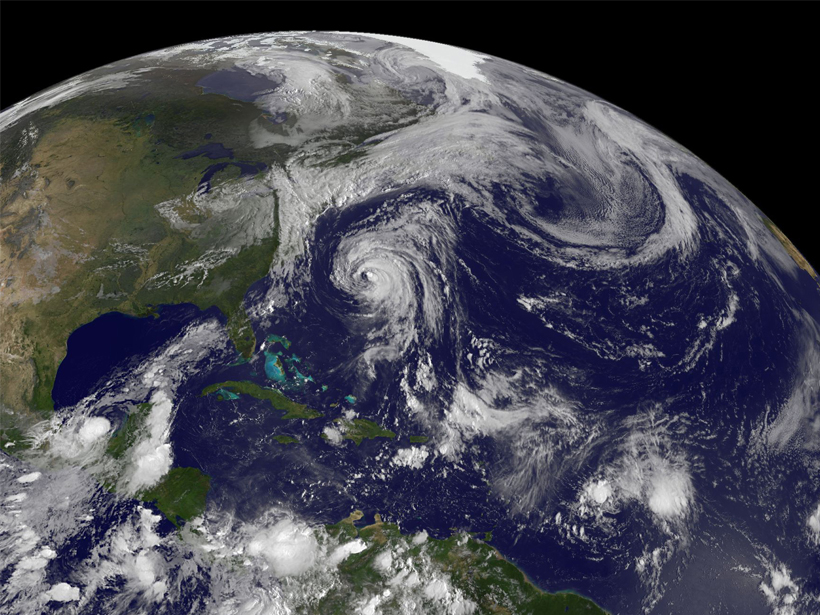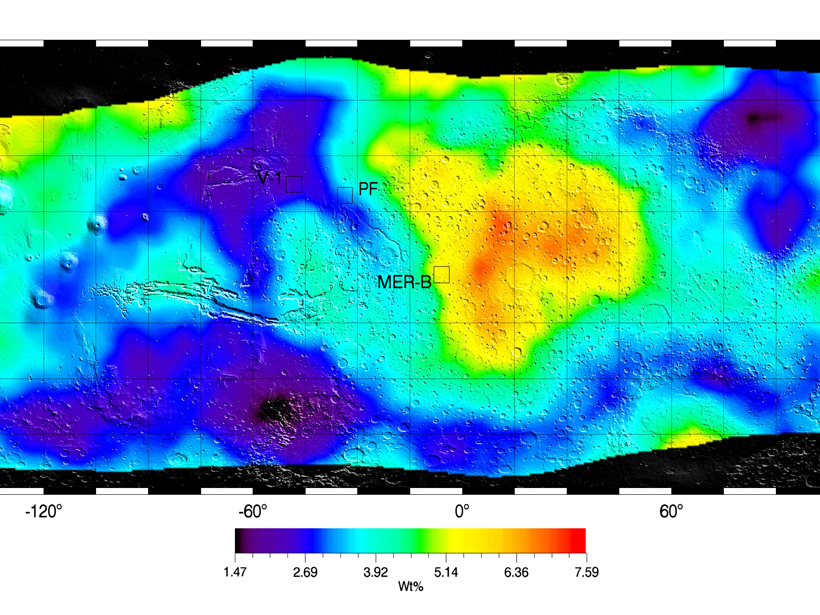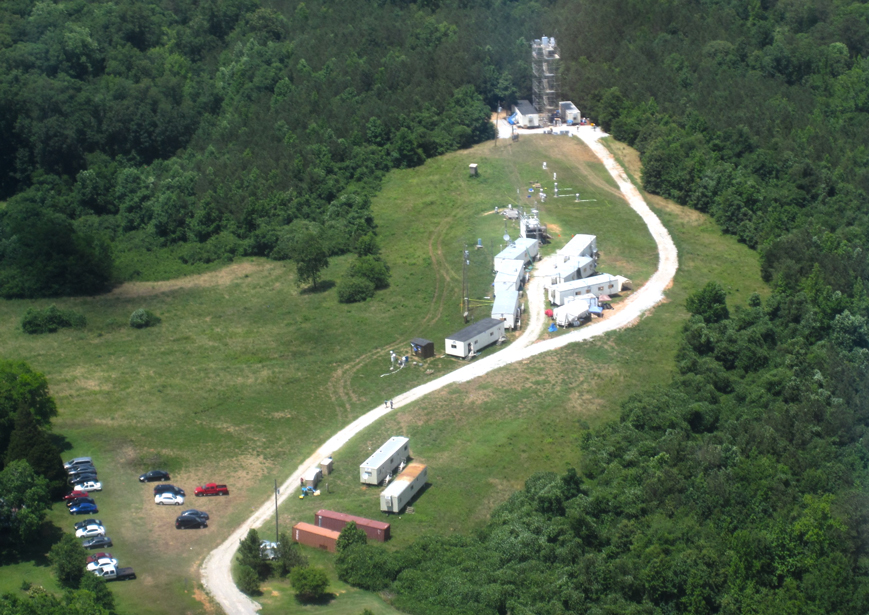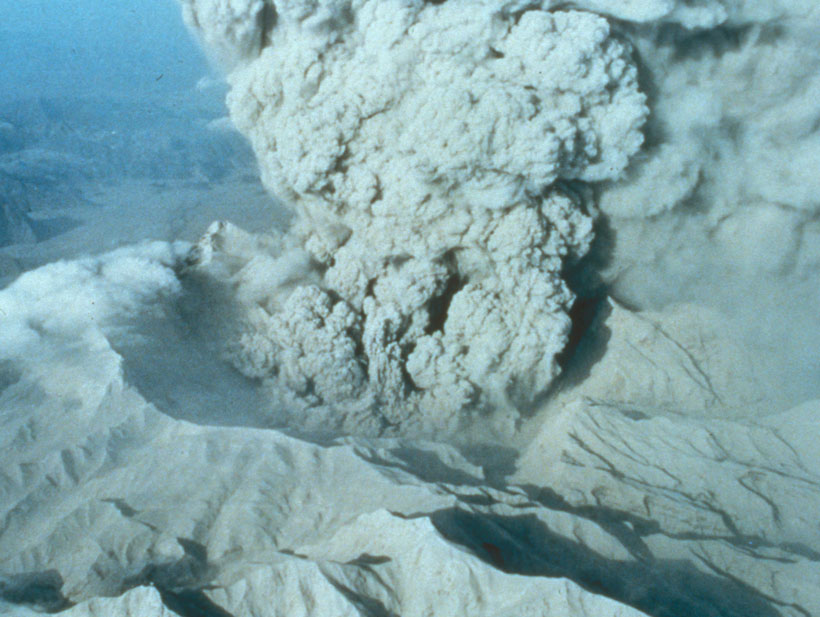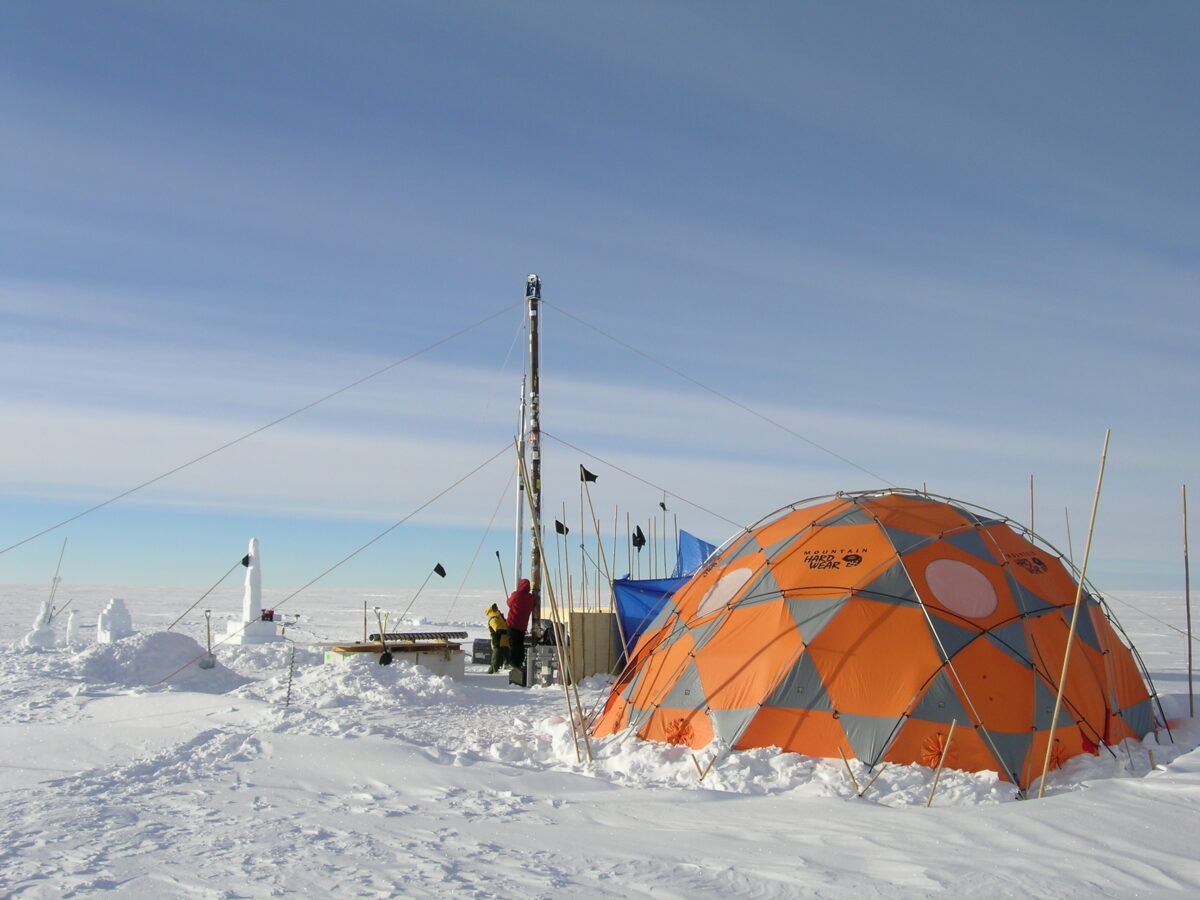Reducing emissions of short-lived gaseous sulfur pollutants from power plants had an immediate, local benefit, but controlling longer-lasting harmful particulate matter will require regional action.
sulfur
Fewer Tropical Cyclones Form After Volcanic Eruptions
Volcanic eruptions aren't all bad—in some cases, they can lower the frequency of tropical cyclones in the North Atlantic by emitting sulfate aerosols.
Details of Gas Flow in Wetland Plant Roots Unearthed
Scientists track the flow of trace gases through wetland root systems to understand the role of plants in biogenic gas fluxes.
Ghiorso and Sack Receive 2014 Norman L. Bowen Award
Mark Ghiorso and Richard O. Sack received 2014 Norman L. Bowen Awards at the 2014 American Geophysical Union Fall Meeting, held 15–19 December in San Francisco, Calif. The award recognizes outstanding contributions to volcanology, geochemistry, or petrology.
Water Beneath the Surface of Mars, Bound Up in Sulfates
Researchers present maps of hydrogen and sulfur that hint at water locked in hydrous sulfates in Mars's southern hemispheric soil.
Reduced Emissions Lead to Clearer Skies over Alabama
Aerosol pollutants are on the decline—and so are their effects.
Volcanic Eruptions Steer Conversations on Climate Intervention
Studies of volcanoes, Earth's natural climate coolers, cause scientists to question the merits of methods that intend to slow down climate change by injecting the stratosphere with aerosols.
Atmospheric Carbonyl Sulfide Hit a Minimum 5,000 Years Ago
A new ice core measurements-based record of a climate-active gas shows variability on millennial timescales.
Large Volcanic Eruptions Cause Drought in Eastern China
In a study with implications for geoengineering, large Northern Hemispheric volcanic eruptions are found to cause strong droughts in much of eastern China.

